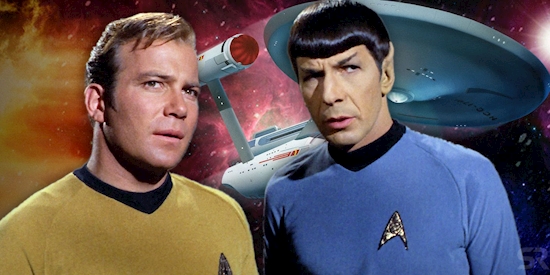Why Star Trek: The Original Series Was Cancelled After Season 3
Star Trek is still going strong in its sixth decade, but the original iteration of the science fiction powerhouse - Star Trek: The Original Series - ended in abject failure. It's hard to imagine anyone in 1969 would believe the low rated NBC series would spawn one of the most enduring franchises in entertainment history, but Star Trek rarely did anything the conventional way. So how did Star Trek: The Original Series end up on the chopping block after only three seasons?
When it debuted in 1966, Star Trek: The Original Series was met with mixed reviews and modest ratings. The show was unlike anything else on television, dealing with social and political issues in ways conventional shows simply couldn't or wouldn't. Star Trek: The Original Series immediately had a young, highly educated following, but it routinely ended up in third place in its time slot, which was something of a problem in an era where there were only three broadcast networks - NBC, CBS, and ABC.
Click the button below to start this article in quick view. Start nowA massive letter-writing campaign ended up saving Star Trek from cancellation after its second season, and plans were made to move it from Fridays to Mondays, where it would have a chance to grow its audience. However, Rowan & Martin's Laugh-In, an incredibly popular sketch comedy series, had already been promised the Monday night time slot, and its powerful producer George Schlatter made sure Star Trek stayed put; for its third and final season, Star Trek aired at 10 PM on Fridays, considered the "death slot" in those days.
Frustrated with NBC's refusal to move Star Trek: The Original Series and exhausted from running the first two seasons, Star Trek creator Gene Roddenberry took a severely decreased role in the production of the show's third season, ceding control to producer Fred Freiberger. Freiberger was faced with a severely slashed budget, an awful time slot, and a writers room thin on talent. The third season of TOS is generally considered its worst, and since the ratings continued to fall, NBC unceremoniously cancelled the show at the conclusion of the third year.
That, of course, was not to be the end for Star Trek. The series entered syndication, where many viewers saw it for the first time. Over the 1970s, it became a posthumous sensation, one of the very few instances where reruns became appointment television. A revival series called Star Trek: Phase II was planned for the mid-'70s, but the success of Star Wars in 1977 saw that project eventually evolve into Star Trek: The Motion Picture, the first of what would be six feature films to feature the TOS cast. Star Trek: The Next Generation took the franchise to new levels of popularity in the '80s and '90s, and Star Trek became a permanent fixture of pop culture. Multiple Star Trek spinoffs and film projects keep the franchise culturally relevant to this day, with Star Trek: Discovery and Star Trek: Picard representing the series on the small screen (the current film plans are a little murkier).
NBC's cancellation of TOS is generally considered one of the biggest mistakes in entertainment history, but it's become an integral part of the franchise's mythology, and one that solidified the bond between the show and its most devoted fans. Star Trek had to fall on its face before it could learn to fly among the stars.
Source: screenrant.com

